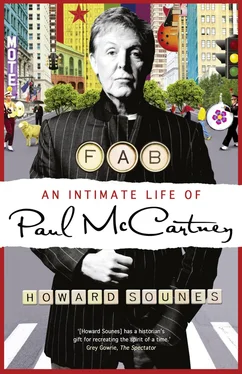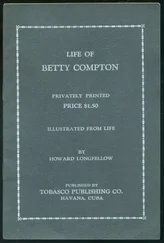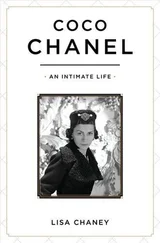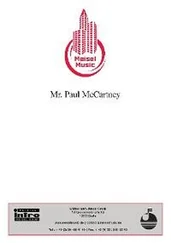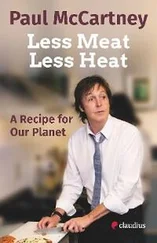Will was working as a baggage steward on the SS Apapa , working a regular voyage between Liverpool and West Africa. The outward-bound cargo in September 1949 included 70 crates of newly printed bank notes, destined for the British Bank of West Africa. The crates of money, worth many millions in today’s terms, were sealed and locked in the strongroom of the ship. Will and two crewmates, pantry man Thomas Davenport and the ship’s baker, Joseph Edwards, hatched a plan to steal some of this money. It was seemingly Davenport’s idea, recruiting Stapleton to help file down the hinges on the strongroom door, tap out the pins and lift the door clear. They then stole the contents of one crate, containing 10,000 West African bank notes, worth exactly £10,000 sterling in 1949, a sum equal to about £250,000 in today’s money (or $382,500 US † † Unless indicated, sterling/dollar exchange values are as of the time of writing. * It is sometimes said that Harrison was born on 24 February 1943, but his birth and his death certificate clearly state his birthday as the 25th.
). The thieves replaced the stolen money with pantry paper, provided by Edwards, resealed the crate and rehung the door. When the cargo was unloaded at Takoradi on the Gold Coast, nothing seemed amiss and the Apapa sailed on its way. It was only when the crates were weighed at the bank that one crate was found light and the alarm was raised.
The Apapa had reached Lagos, where the thieves spent some of the stolen money before rejoining the ship and sailing back to England. British police boarded the Apapa as it returned to Liverpool, quickly arresting Davenport and Edwards, who confessed, implicating Stapleton. ‘You seem to know all about it. There’s no use in my denying it further,’ Paul’s Uncle Will was reported to have told detectives when he was arrested. The story appeared on page one of the Liverpool Evening Express , meaning the whole family was appraised of the disgrace Will had brought upon them.
‘Jesus, it’s the bloody thing he always said he was going to have a go at!’ exclaimed Aunt Ginny.
Stapleton and his crewmates pleaded guilty in court to larceny on the high seas. Stapleton indicated that his cut was only £500. He said he became nervous when he saw the ship’s captain inspecting the strong room on their return voyage. ‘As a result I immediately got rid of what was left of my £500 by throwing it through the porthole into the sea. I told Davenport and he called me a fool and said he would take a chance with the rest.’ The judge sentenced Uncle Will to three years in prison, the same with Davenport. Edwards got 18 months.
The police only recovered a small amount of the stolen money. Maybe Davenport and Stapleton had indeed chucked the rest in the Atlantic, as they claimed, but within the McCartney family there was speculation that Will hung onto some of that missing currency. It was said that the police watched him carefully after he got out of jail, and when detectives finally tired of their surveillance Will went on a spending spree, acquiring, among other luxuries, the first television in Scargreen Avenue.
GROWING UP
Paul’s parents got their first TV in 1953, as many British families did, in order to watch the Coronation of the new Queen, 27-year-old Elizabeth II, someone Paul would see a lot of in the years ahead. Master McCartney distinguished himself by being one of 60 Liverpool schoolchildren to win a Coronation essay competition. ‘Coronation Day’ by Paul McCartney (age: 10 years 10 months) paid patriotic tribute to a ‘lovely young Queen’ who, as fate would have it, would one day knight him as Sir Paul McCartney.
Winning the prize showed Paul to be an intelligent boy, which was borne out when at the end of his time at Joseph Williams Primary he passed the Eleven Plus – an exam taken by British schoolchildren aged 11–12 – which was the first significant fork in the road of their education at the time. Those who failed the exam were sent to secondary modern schools, which tended to produce boys and girls who would become manual or semi-skilled workers; while the minority who passed the Eleven Plus typically went to grammar school, setting them on the road to a university education and professional life. What’s more, Paul did well enough in the exam to be selected for Liverpool’s premier grammar school, indeed one of the best state schools in England.
The Liverpool Institute, or Inny, looked down on Liverpool from an elevated position on Mount Street, next to the colossal new Anglican cathedral. Work had started on what is perhaps Liverpool’s greatest building, designed by Sir Giles Gilbert Scott, in 1904. The edifice took until 1978 to finish. Although a work in progress, the cathedral was in use in the early 1950s. Paul had recently tried out for the cathedral choir. (He failed to get in, and sang instead at St Barnabas’ on Penny Lane.) Standing in the shadow of this splendid cathedral, the Inny had a modest grandeur all its own. It was a handsome, late-Georgian building, the entrance flanked by elegant stone columns, with an equally fine reputation for giving the brightest boys of the city the best start in life. Many pupils went on to Oxford and Cambridge, the Inny having produced notable writers, scientists, politicians, even one or two show business stars. Before Paul, the most famous of these was the comic actor Arthur Askey, at whose desk Paul sat.
Kitted out in his new black blazer and green and black tie, Paul was impressed and daunted by this new school when he enrolled in September 1953. Going to the Inny drew him daily from the suburbs into the urban heart of Liverpool, a much more dynamic place, while any new boy felt naturally overwhelmed by the teeming life of a school that numbered around 1,000 pupils, overseen by severe-looking masters in black gowns who’d take the cane readily to an unruly lad. The pupils got their own back by awarding their overbearing teachers colourful and often satirical nicknames. J.R. Edwards, the feared headmaster, was known as the Bas, for Bastard. (Paul came to realise he was in fact ‘quite a nice fella’.) Other masters were known as Cliff Edge, Sissy Smith (an effeminate English master, related to John Lennon), Squinty Morgan, Funghi Moy and Weedy Plant. ‘He was weedy and his name was Plant. Poor chap,’ explains Steve Norris, a schoolboy contemporary of Paul’s who became a Tory cabinet minister.
The A-stream was for the brightest boys, who studied classics. A shining example and contemporary of Paul’s was Peter ‘Perfect’ Sissons, later a BBC newsreader. The C-stream was for boys with a science bent. Paul went into the B-stream, which specialised in modern languages. He studied German and Spanish, the latter with ‘Fanny’ Inkley, the school’s only female teacher. Paul had the luck to have an outstanding English teacher, Alan ‘Dusty’ Durband, author of a standard textbook on Shakespeare, who got his pupils interested in Chaucer by introducing them to the sexy passages in the Canterbury Tales . ‘Then we got interested in the other bits, too, so he was a clever bloke.’ Paul’s other favourite classes were art and woodwork, both hobbies in adult life. Before music came into his life strongly, Paul was considered one of the school’s best artists. Curiously, Neddy Evans’s music lessons left him cold. Although Dad urged Paul to learn to read music, so he could play properly, Paul never learned what the dots meant. ‘I basically never learned anything at all [about music at school].’ Yet he loved the Inny, and came to recognise the head start it gave him in life. ‘It gave you a great feeling of the world was out there to be conquered, that the world was a very big place, and somehow you could reach it from here.’
Читать дальше
